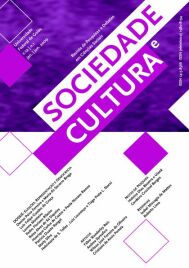Political parties, campaign, and voting: voter decision-making in municipal elections
DOI:
https://doi.org/10.5216/sec.v12i1.6903Keywords:
elections, electoral behavior, party identifi cation, votingAbstract
The election for mayor in the capital of the state of Minas Gerais in 2008 occurred in a complex context, characterized by alternating positions of the leading candidates in the polls and by a controversial, informal alliance between PT and PSDB. This study aims at offering the electoral groups’ profi les and at assessing the determinants of the electoral choice in the 2008 mayoral election in Belo Horizonte (MG - Brazil). Making use of a multinomial model of logistic regression, we examine the effects of campaign exposure, party identification and the evaluation of mandates’ and economy’s performances on the voting decision for mayor. The data were collected by surveys carried out by the Universidade Federal de Minas Gerais and the Instituto de Pesquisas Sociais, Políticas e Econômicas (IPESPE), during the election’s first and second rounds.Downloads
Download data is not yet available.
Downloads
Published
2009-08-11
How to Cite
TELLES, HELCIMARA DE SOUZA; LOURENÇO, LUIZ CLÁUDIO; STORNI, TIAGO PRATA L. Political parties, campaign, and voting: voter decision-making in municipal elections. Sociedade e Cultura, Goiânia, v. 12, n. 1, p. 91–116, 2009. DOI: 10.5216/sec.v12i1.6903. Disponível em: https://revistas.ufg.br/fcs/article/view/6903. Acesso em: 4 mar. 2026.
Issue
Section
Thematic Dossier
License
Authors who publish in this journal agree to the following terms:
- Authors retain the copyright and grant the journal the right of first publication, the work being simultaneously licensed under the Creative Commons Attribution License, which allows the sharing of the work with acknowledgment of authorship and of the initial publication in this journal;
- Authors are authorized to enter into additional contracts separately, for non-exclusive distribution of the version of the work published in this journal (eg, publishing in an institutional repository or as a book chapter), with acknowledgment of authorship and of the initial publication in this journal;
- Authors are allowed and encouraged to post and distribute their work online (eg, in institutional repositories or on their personal page) at any point before or during the editorial process, as this can bring productive change as well as increases the impact and the citation of the published work (see O Efeito do Acesso Livre).



